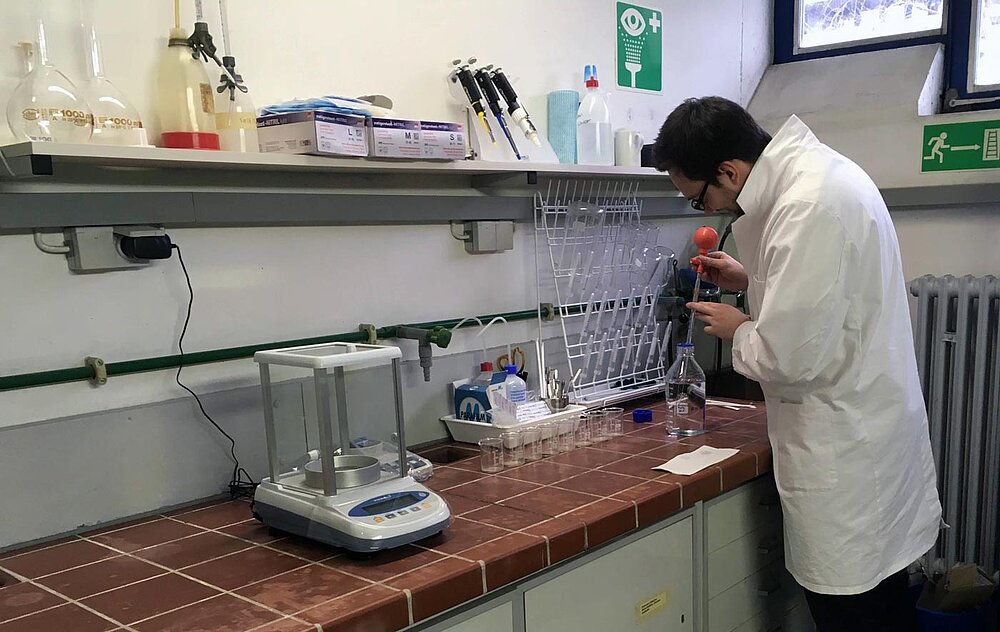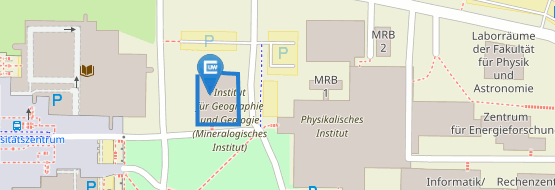Phytolith Laboratory

Overall management, organization, assignments, equipment, research and teaching:
Jun.-Prof. Dr. Julia Meister
Phytolith Laboratory
Institute of Geography and Geology - Physical Geography
University of Würzburg
Am Hubland
97074 Würzburg, Germany
Building: Geography building
Rooms: 231a (administration), K19 (laboratory)
Phone: +49 (0)931 / 31- 81632
E-Mail: julia.meister@uni-wuerzburg.de
- Transmitted light microscopes (KERN, OBE 114) incl. camera (KERN, ODC 825)
- Drying cabinet (Thermoscientific, OGS60)
- Small centrifuge (Hermle, Z 206 A)
- Microlitre centrifuge (Roth, Rotilabo GustoTM)
- Semi-microbalance (VWR, SM 425i)
- Compact balance (KERN, EMB 100-3)
- Mini ultrasound device (EMAG, Emmi-05 ST)
- Water bath (KÖTTERMANN)
- Sample shaker
- Magnetic stirrer (Roth, Rotilabo M3)
In addition to general rules for working routines in the laboratory, the practical laboratory courses impart basic technical skills and routines in the handling of various laboratory instruments. In addition, they show students the potential of quantitative data collection, which can be used to specify and validate field findings in a meaningful way.
Summer semester:
(09-MBG2-1) Soil Geography Laboratory and Microscopy Lab Course
Laboratory practice for advanced students as part of the Master's program. Successful completion of the laboratory course for beginners is a prerequisite.
Content:
In addition to routine analysis in the geomorphological soil science laboratory, theoretical and practical knowledge on the preparation and analysis of phytoliths is taught within the framework of the laboratory and microscopy practical course mentioned above.





